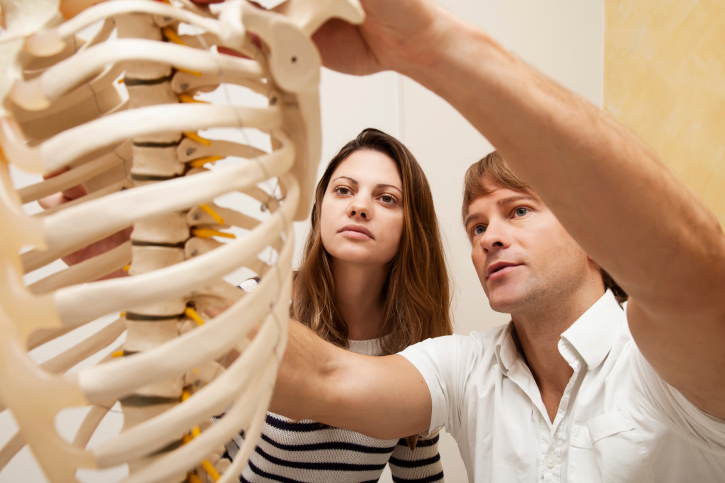When issues arise, see a specialist for expert advice
Whether you're dealing with injury, want to improve your diet or looking to achieve lofty goals, seeing a variety of running specialists can help improve your training


Despite what seems like an endless amount of available resources—websites, magazines, fellow runners, our own experience, etc.—there comes a time when we all could use a trusted second opinion and some expert advice.
RELATED: Dealing with an injury? A runner’s survival guide
Whether it’s a potential injury, a nutritional issue, chronic soreness or wanting to train at a higher level, there are various specialists who’s job it is to get runners back on track and help them improve and enjoy their running.
Physical Therapists/Physiotherapists
Long sought for their ability to treat problems with the musculoskeletal system, PTs specialize in repairing, improving and enhancing all matters of mobility and function. They can often detect and assess strength imbalances, flexibility issues and chronic sore areas and provide immediate treatment through manual therapy such as active release as well as suggest strength exercises which address the underlying problems and provide solutions for the long term.
RELATED: Patellofemoral Pain Syndrome: The last thing a runner *kneeds*
Chiropractors
Chiropractors traditionally specialized in issues involving the spine and nervous system but have recently evolved into more all-encompassing type practitioners who can treat any number of related neuromusculoskeletal issues. They often perform manual therapy including of the spine, joints and soft tissues but may also employ alternative techniques like acupuncture. Increasingly they promote other exercise and lifestyle changes to compliment manual therapy. Many contemporary chiropractors have distanced themselves from traditional types (think subluxation) and some now even specialize in sports and exercise-related issues.
RELATED: Fact or fiction: Getting on point about acupuncture
Sports medicine specialist/physicians
In the event of something more serious, a sports physician will have received specialized training related to sports and exercise medicine. In addition to having the ability to diagnose specific injuries and ailments related to or caused by physical activity, sports and exercise, they can also prescribe medication and specialized tests such as x-rays, bone scans and MRIs. In most cases, their services are covered by provincial insurance although getting in to see one may take some time.
Massage therapists
Getting a massage is a great way to work out sore muscles, sticky joints and chronically tight areas. It will likely feel anything but comfortable at the time, but a massage can provide quick relief to sore, tight and tense areas. Some massage therapists undergo addition training to specialize in deep tissue (sports) massage and specifically treat and work with athletes and physically active populations. Consider massage several days or up to a week before a tough workout or race to feel loose, ready and relaxed or have one done afterwards to help with recovery.
Dieticians
For any and all diet and nutrition-related issues, a registered dietitian (R.D.) is the best person to consult for both general and individualized advice and support. Whether it’s losing weight, gaining it, dealing with allergies and sensitivities or just wanting to feel better and be healthier, a dietitian can likely help. They can also address possible deficiencies and dependencies and provide solutions to get your diet back on track and fuel you for better health and performance. Note that in Canada a dietitian is a regulated profession while nutritionists are not.
RELATED: Fer your health: The importance of iron for running health and performance
Sports psychologists
For those who are performance-focused and driven to accomplish specific goals, a sports psychologist may be an option to offer a unique edge over the competition. For those who struggle with race-related anxiety and stress or who are looking to develop personalized mental strategies to perform better, a sports psychologist can help put your personality and emotional tendencies to work for you, rather than against you.
RELATED: Six mental tricks to run and race at your best
Coaches
Coaches are perhaps a different type of specialist but are nonetheless a proven source of motivation, support and guidance. They can tailor a training plan specifically to your needs and goals and provide a tremendous amount of ongoing support and motivation to go beyond what you’re able to do on your own. There is no shortage of running coaches and/or coached clubs around so be sure to do some research, ask questions and find the one that meets your specific needs.



